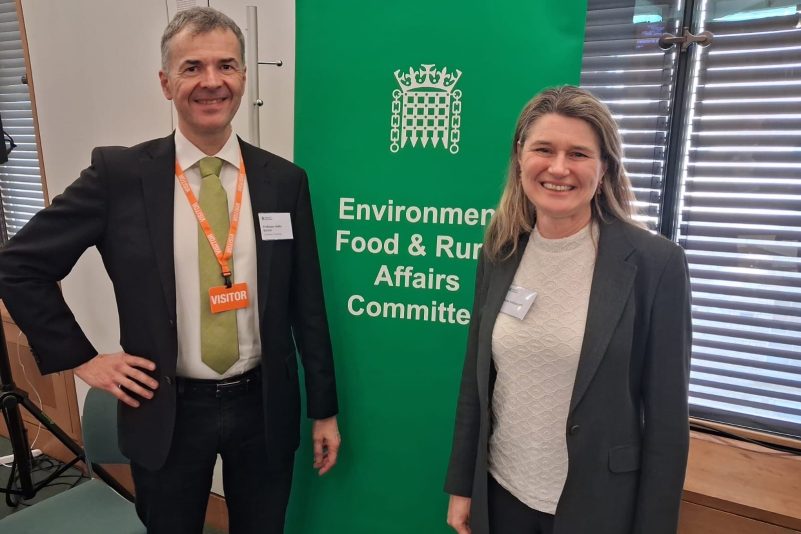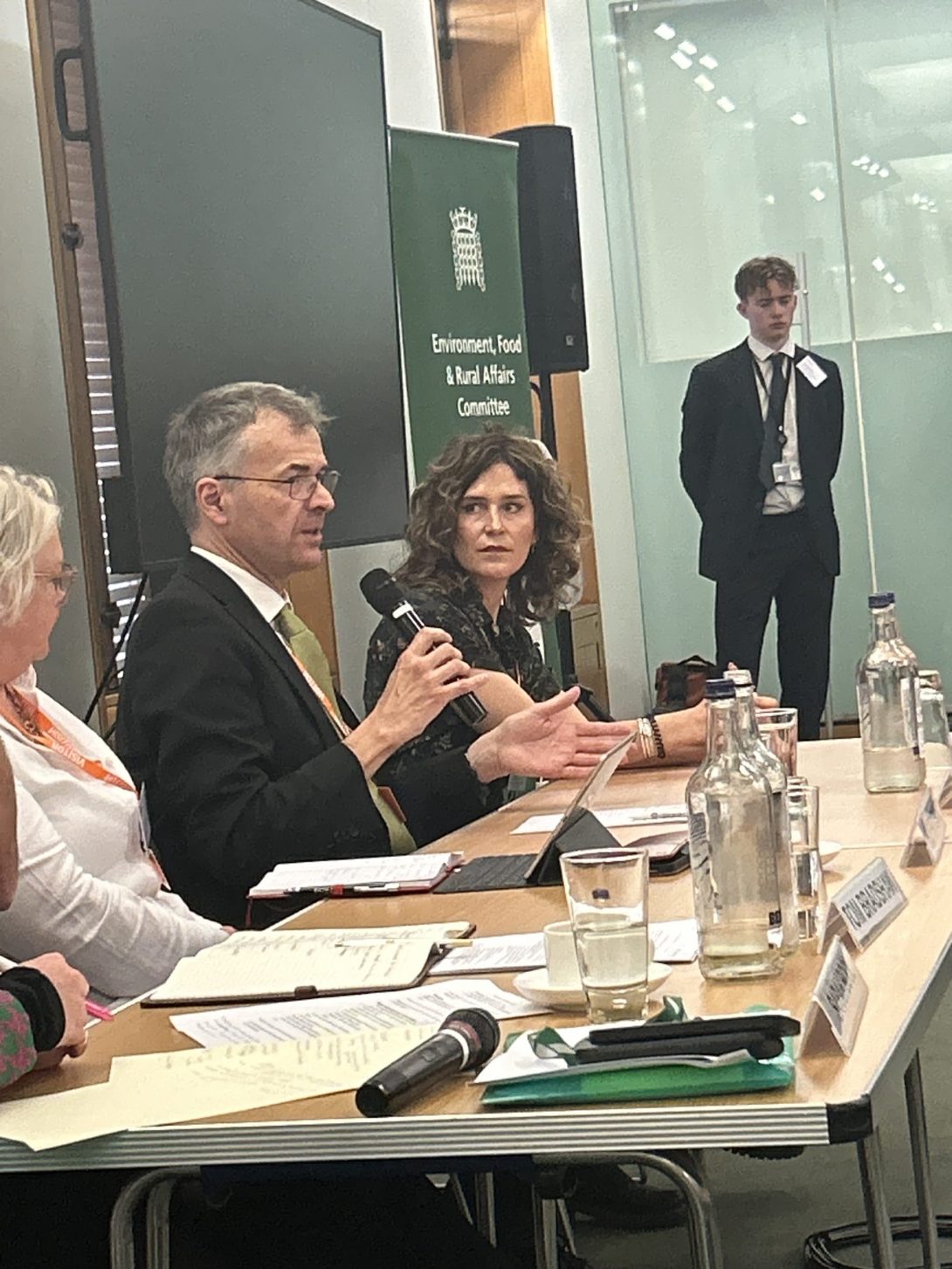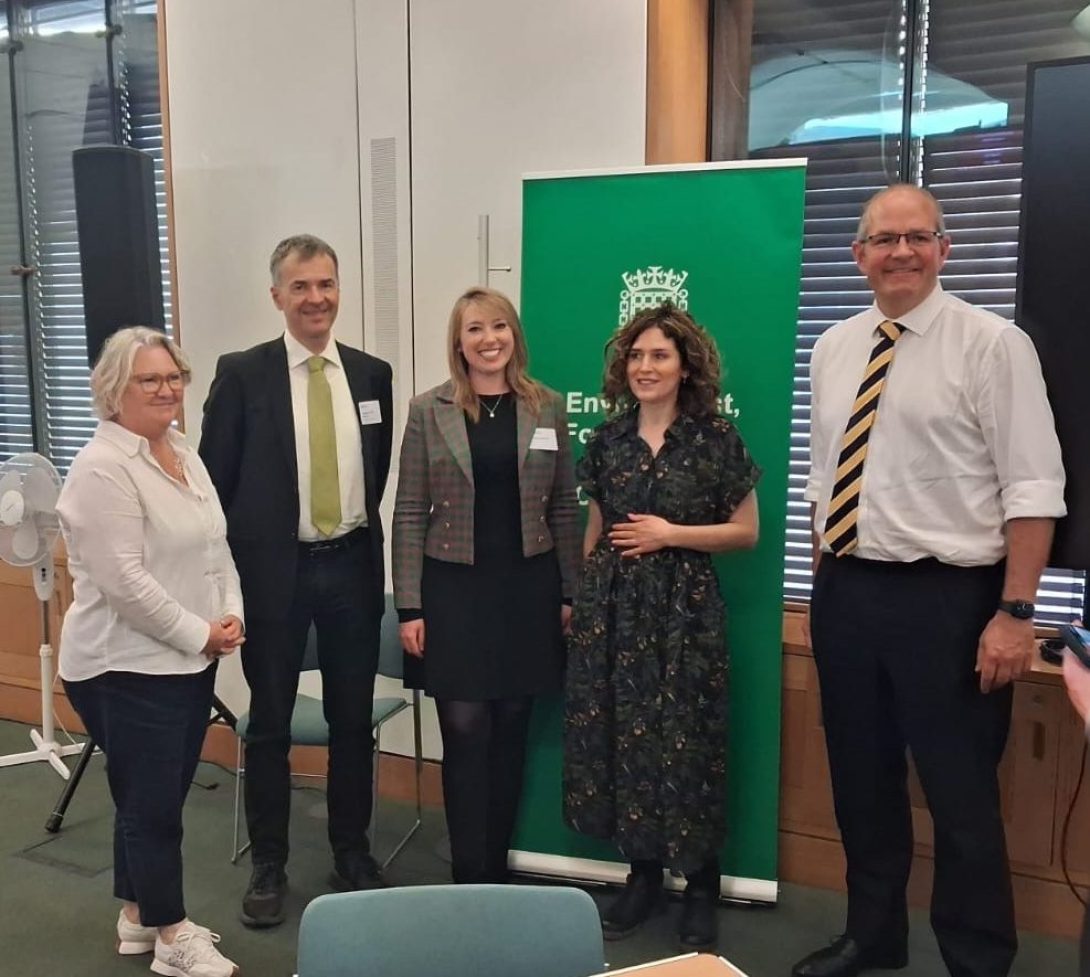A Land Use Framework Fit for Net Zero: Key Takeaways from Professor Heiko Balzter's speech to the EFRA Select Committee

Professor Heiko Balzter, speaking on behalf of the Land Use for Net Zero Nature and People Hub, addressed the Environment, Food and Rural Affairs (EFRA) Select Committee on how the Land Use Framework for England can deliver for Net Zero. His remarks underscored the scale and urgency of land use transformation, calling for inclusive processes, spatial sensitivity, and data-driven delivery to achieve net zero goals.
1. A National Transformation of Historic Scale
Professor Balzter opened by comparing the scale of required land use change in England to the “Dig for Victory” campaign of the Second World War—a nation-wide mobilisation of resources and people. He emphasised that the Land Use Framework for England presents an opportunity for strategic coherence and planning in making important progress towards the UK’s net zero goals.
2. Co-Creation Must Be Central to Implementation
A central theme of Professor Balzter’s remarks was co-creation. He stressed that the Land Use Framework must be co-designed with local communities, farm clusters, farming associations, and diverse land users. Land users and managers have the potential to be both drivers of and barriers to effective land use planning and change. Implementation will therefore only be effective if it is built on meaningful collaborative input and shared ownership from the outset.
3. Land Use Must Deliver for All Stakeholders
Land is often perceived as the domain of farmers and landowners, but Professor Balzter highlighted the broader range of societal stakeholders: cyclists, nature enthusiasts, public health advocates, and more. Well-planned land use can deliver wide public benefits for all people, ranging from improving mental and physical health to reducing NHS costs through better access to green space. When designing a strategy for land use change, it is therefore important that the benefits of land use change are as far-reaching as possible. In order to achieve this, all types of land users should be incorporated into the co-creative land use decision making process.

Professor Balzter and Alice Groom
4. Participatory Events Build Trust and Inclusion
Drawing on the work of the LUNZ Hub, Professor Balzter cited the “Big Tent” stakeholder events — bringing together over 100 participants across sectors — as a model for inclusive dialogue. He emphasised the importance of local engagement, referencing the Leicester Food and Language Summit, where communities expressed a strong desire to contribute to policy. These participatory forums foster both local empowerment and political responsiveness.
5. Spatial Planning Must Respect Landscape Character
Transformation must not be uniform. Instead, policies should reflect landscape archetypes and character, as well as the values of local communities and land users. Drawing on research by UKCEH, Professor Balzter called for the incorporation of landscape character into spatial planning. Understanding what people value about their environments is key to designing place-sensitive, climate-resilient interventions.
6. High-Quality, Dynamic Data Is Essential
In closing, Professor Balzter outlined the importance of effective data usage and infrastructure, arguing that robust, live data systems are critical for informed decision-making. He shared insights from the University of Leicester’s work on digital twins — real-time digital models fed by satellite and weather data which offer immediate feedback loops for farmers and land managers. He proposed a bold vision: a national digital twin for land use in England, providing continuously updated, AI-driven insight into land use decisions and their long-term impacts.

(Left to right) Sue Pritchard, Professor Balzter, Sarah Bool MP, Alice Groom, Tom Bradshaw
Conclusion: A Call for Bold, Inclusive Action
Professor Balzter’s testimony shed light on how the Land Use Framework for England presents an opportunity for major progress in the UK’s path to net zero. In order to achieve this, however, the consultation process will require more than policy change alone — it demands a transformational, participatory, and technologically-enabled approach to land use planning. Professor Balzter therefore echoes the Land Use for Net Zero Hub’s calls for co-creative engagement practices, spatial nuance, and investment in data systems to shape resilient and equitable landscapes for future generations.

Professor Heiko Balzter
Principal Investigator
Subscribe to our Newsletter
A quarterly update of all LUNZ Hub activities, events and news stories.
